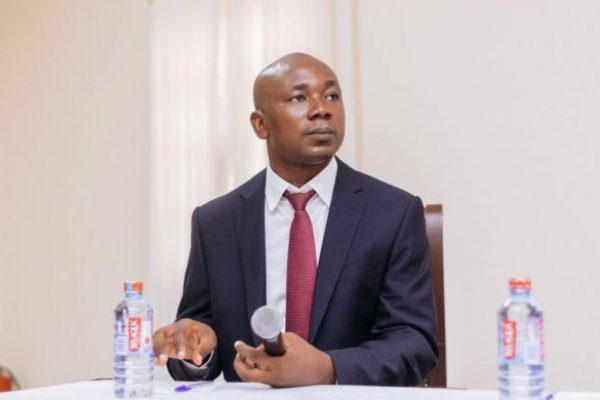Economist and Professor of Finance at the University of Ghana Business School (UGBS), Prof Godfred Bokpin believes the government will have a difficult time convincing individual bondholders to participate in the Domestic Debt Exchange Programme (DDEP).
According to him, individual bondholders, mostly pensioners, have had their share of suffering from the economic crisis since the past year, and as a result, they were adamant about being included in the programme.
"It was always going to be difficult to include individual bondholders, especially pensioners. In such difficult times, they’ve been living through…inflation era for the past 12 months. So even these bonds that we are talking about, they having haircuts here and there, they’ve really suffered from inflationary pressures, the news is negative in real terms, and all of that."
“I think for the sake of our democracy, and social cohesion and stability, I think it is prudent that individual bondholders are excluded,” Prof Bokpin said on The Probe on Sunday.
Prof Bokpin also commended the technical committee on the debt exchange programme for proposing other alternatives on revenue and expenditure to be considered by the government.
According to him, the committee helped to clarify the quantification of many individual bondholders' grievances in terms of fiscal savings through measures such as spending cuts and other revenue enhancement.
Prof Bokpin also stressed that he believed the technical committee’s actions were quite illustrative of the level of wakefulness that has presided over Ghanaians over the years.
Ghana's economy is still recovering from the pandemic and the government is attempting to restructure its massive debt load in order to qualify for assistance from the International Monetary Fund.
Thus, the Ministry of Finance introduced a domestic debt exchange programme on December 5, 2022.
The country needs about 80% of bondholders to sign up for its domestic debt exchange programme, however, individual bondholders have since opposed the programme due to what they say is a lack of clarity about its terms.
Eventually, it was disclosed in a press release dated January 23, that the government has come to an agreement with the Ghana Association of Banks to pay a 5% coupon on its 2023 bonds, which the original debt exchange plan had said would not pay interest.
Additionally, it was stated in the deal that all other restructured bonds will pay 9% coupons rather than the variable rates originally outlined.
Latest Stories
-
‘Let industry players play the game ‘ – AOMC boss slams political interference in oil sector
5 mins -
‘So many regulations, yet corruption prevails’ – Dr Riverson Oppong on OMC oversaturation
14 mins -
At least 24 dead after two boats capsize off coast of Madagascar
1 hour -
Madina MP lauds White Chapel Youth Group for championing peace ahead of elections
1 hour -
Man United settle for draw at Ipswich Town in Amorim’s first game in charge
2 hours -
GPL 2024/2025: Prince Owusu screamer earns Medeama win over Young Apsotles
2 hours -
BBC visits mpox clinic as WHO says DR Congo cases ‘plateauing’
2 hours -
Burning old TVs to survive in Ghana: The toxic trade in e-waste
2 hours -
Perfume boss admitted he ignored Russia sanctions
2 hours -
Wicked proves popular as opening set to be biggest for Broadway film
3 hours -
Nominee for agriculture secretary completes Trump cabinet
3 hours -
ECG urges prepaid customers to top up to last one month ahead of system upgrade
3 hours -
Three more tourists named in Laos methanol deaths
3 hours -
Betway Africa offers a once-in-a-lifetime ‘Play-on-the-Pitch’ experience at Emirates Stadium
4 hours -
The rise and fall of Matt Gaetz in 8 wild days
4 hours

